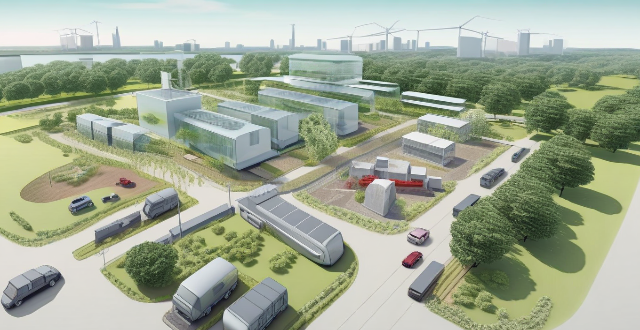The article discusses the potential environmental impacts of super fast charging stations for electric vehicles. It highlights concerns such as increased energy consumption, battery degradation, land use and urban sprawl, and noise pollution. The article emphasizes the importance of using renewable sources of electricity, implementing proper battery recycling programs, considering land use and urban sprawl issues, and addressing noise pollution concerns to minimize these impacts.

Impact of Super Fast Charging Stations on the Environment
Introduction
Super fast charging stations are becoming increasingly popular as they offer faster charging times for electric vehicles (EVs). However, their impact on the environment is a topic of concern. In this article, we will discuss the potential environmental impacts of super fast charging stations.
Energy Consumption
One of the main concerns regarding super fast charging stations is their energy consumption. These stations require a significant amount of electricity to charge EVs quickly. This increased demand for electricity may lead to higher greenhouse gas emissions if the power comes from fossil fuel-based sources. To mitigate this issue, it is essential to ensure that the electricity used by these stations comes from renewable sources such as wind or solar power.
Battery Degradation
Another potential environmental impact of super fast charging stations is battery degradation. Rapid charging can cause stress on EV batteries, leading to reduced lifespan and increased waste. This can result in more batteries being disposed of earlier than expected, which can have negative environmental consequences if not properly recycled.
Land Use and Urban Sprawl
The installation of super fast charging stations may also contribute to urban sprawl and land use issues. As more people switch to EVs, there will be a need for more charging infrastructure, including super fast charging stations. This could lead to increased development and expansion into rural areas, which can have negative environmental impacts such as habitat loss and fragmentation.
Noise Pollution
While not directly related to air pollution or climate change, noise pollution is another potential environmental impact of super fast charging stations. The high-power equipment used in these stations can generate significant noise levels, which can have negative effects on local wildlife and human health.
Conclusion
In conclusion, while super fast charging stations offer many benefits for EV owners, their potential environmental impacts should not be overlooked. To minimize these impacts, it is crucial to ensure that the electricity used by these stations comes from renewable sources, implement proper battery recycling programs, consider land use and urban sprawl issues, and address noise pollution concerns. By taking these steps, we can continue to promote the adoption of EVs while also protecting our environment.